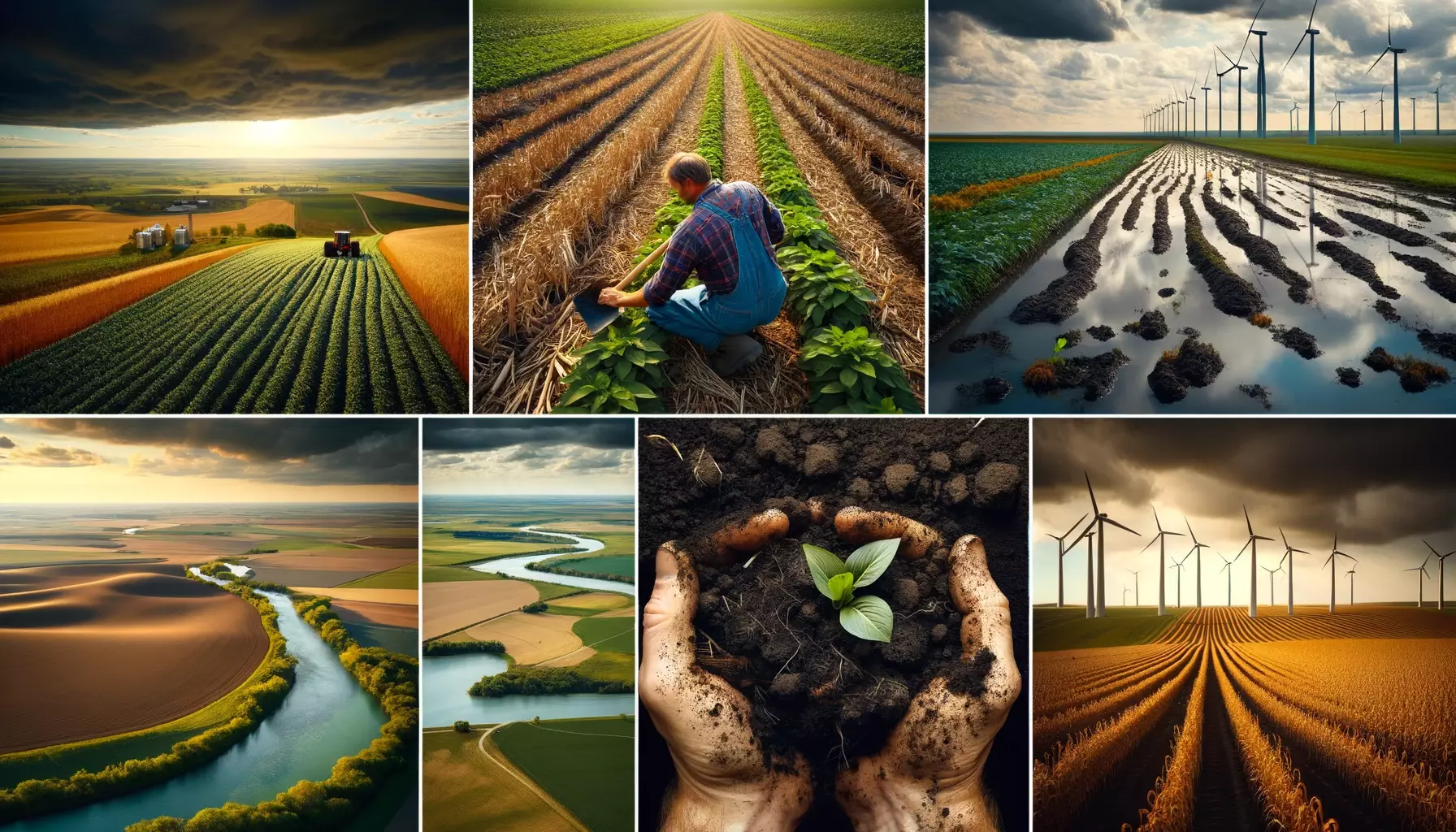Iowa’s Vital Soil Under Threat
Iowa’s valuable, nutrient-rich soil is facing a decline, a troubling trend highlighted by new studies. As one of the state’s most precious resources, this soil forms the cornerstone of Iowa’s economy. Research, including recent models, now shows that factors like tillage and a constant cycle of nutrient-intensive crops like corn and soybeans are leading to a significant loss of soil organic carbon. According to retired scientist Jerry Hatfield from the U.S. Department of Agriculture, an alarming 12 million tons of organic carbon are being lost annually from Iowa’s soil.
A Legacy Eroding Away
The situation in Iowa mirrors a broader environmental challenge. Over several farming generations, Iowa has seen a reduction of almost half of its original 96 billion tons of soil organic carbon, based on exclusive data reported by the Des Moines Register. This loss doesn’t just affect local farmers; it has wider implications for food production both in the U.S. and globally.
Economic and Environmental Ramifications
The decrease in soil organic carbon in Iowa comes with a hefty price tag. Farmers are increasingly dependent on fertilizers and chemicals to maintain crop yields, which cuts into their profits. Furthermore, lower levels of soil organic carbon reduce the soil’s capacity to retain water, leading to problems like soil erosion, flooding, and harmful runoff into water bodies. The state’s economy, heavily reliant on agriculture valued at around $278 billion, feels the strain of these environmental challenges.
Efforts to Mitigate Climate Change in Agriculture
As part of a nationwide initiative to reduce the impact of farming on climate change, the Biden administration has allocated substantial funds towards environmental conservation in agriculture. Iowa, with its significant agricultural sector, plays a crucial role in these efforts, particularly in reducing greenhouse gas emissions.
Innovative Farming Practices: A Ray of Hope
Progressive farmers in Iowa, like Mitchell Hora and Ray Gaesser, are adopting sustainable farming practices such as reduced tillage, cover cropping, and diversifying crop rotations. These methods not only improve soil health but also enhance farm profitability and resilience against extreme weather events.
The Threat of Inaction
However, the situation remains precarious. Experts like Michael McNeill warn that without widespread adoption of these conservation practices, Iowa risks depleting its soil resources, potentially turning fertile land into barren landscapes.
Building Resilience Against Climate Extremes
Iowa’s recent history of extreme weather events, including droughts and intense rainstorms, highlights the urgency of adopting more sustainable farming practices. These events underscore the need for diverse crop rotations and soil conservation techniques to build resilience against climate change.
Quantifying Soil Carbon Loss and Solutions
The federal government, recognizing the gravity of this issue, is investing in projects and research to quantify and mitigate soil carbon loss. These efforts include sophisticated modeling and field studies to better understand and address the challenges faced by farmers in maintaining soil health.
Addressing the Economic Implications of Climate Change on Farming
The economic impact of climate change on farming is becoming increasingly apparent, with record payouts for crop losses. There is a growing consensus on the need for reforms in agricultural practices and policies to make farming more sustainable and resilient.
A Call to Action for Sustainable Farming
In conclusion, the situation in Iowa serves as a wake-up call for the urgent need to adopt more sustainable farming practices. The state’s experience illustrates the interconnectedness of soil health, agricultural productivity, and global food security. It’s a reminder that the actions we take today will shape the agricultural landscape of tomorrow.
